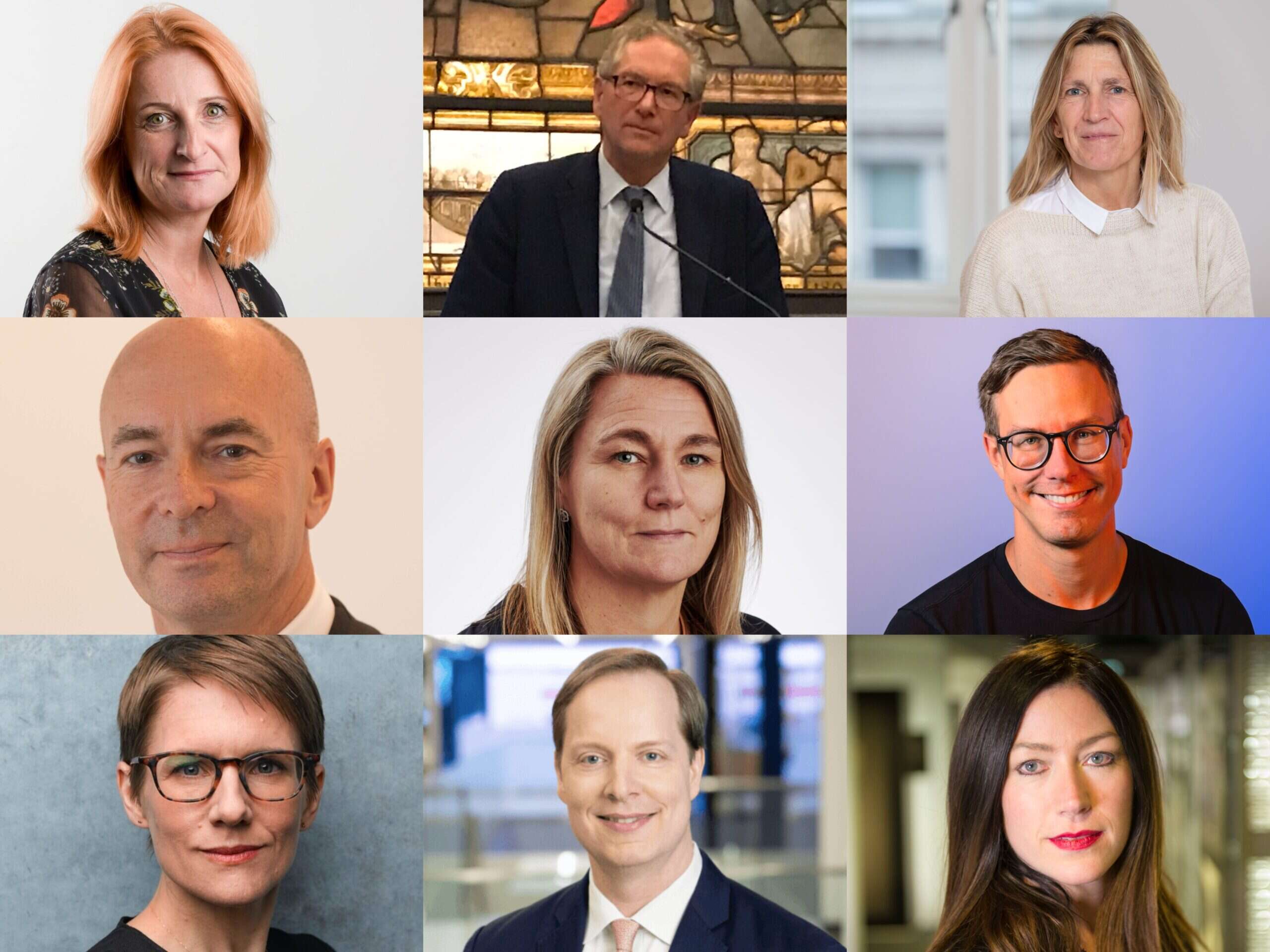
Press Gazette has asked 22 of our readers – news leaders from across the UK and US – to provide us with their media predictions and plans for 2022.
We asked executives and editors from Reuters, The Sun, Dow Jones, The Times, Quartz, the Telegraph, Gannett, Future, Insider and many other newsgroups to tell us how optimistic they are about the year ahead compared with this time last year. We also asked them to tell us what they think the biggest opportunity of 2022 will be and how they plan to capitalise on that opportunity.
Our respondents operate in multiple sectors, run different lines of business, and live across various time zones. But there were some overriding themes.
1. ‘Fact-based journalism is a commercial opportunity’
When Press Gazette ran a similar survey last year, we asked news leaders to identify the biggest challenges of 2021. Several then referenced the online proliferation of misinformation and unreliable news sources.
As we head into 2022, these issues remain. But some news leaders now view them as an opportunity.
“As politics and society become increasingly polarized and opinionated, there is a tremendous opportunity for publishers that offer impartial and unbiased news,” wrote Alessandra Galloni, the editor-in-chief of Reuters. “Presenting rigorously fact-checked, fact-based journalism is a commercial opportunity.”
Almar Latour, the chief executive of Dow Jones and publisher of the Wall Street Journal, said: “During times of unprecedented complexity and disruption, people need to understand the facts. As publishers, it’s our responsibility to rise to the challenge—and that’s an opportunity as well.”
2. Newsletters and ‘thoughtful curation’
Several of our respondents specifically referenced newsletters as a tool for guiding readers through a digital world that is overrun by news sources.
Katherine Bell, the editor-in-chief of Quartz, identified “thoughtful curation” as the biggest opportunity of 2022.
“Readers are overwhelmed by the abundance and unbundling of information,” she wrote. “I absolutely love email newsletters, and I pay for a lot of them, but I only read a few of them regularly.
“Readers don’t know what to pay attention to – this has been a problem in digital media for years, and it’s only grown worse, but I think this could be the year when we’ll see some new efforts to solve it. We’ve been thinking about this a lot at Quartz.”
Alison Phillips, editor-in-chief of The Mirror, said: “It will be interesting to see what else comes from our work with newsletters. I have a weekly editor’s newsletter and in some ways, curating that balanced diet of must-read stories feels very similar to the process of putting a paper together. I think many readers will really respond to that level of care.”
3. Audience data
Several news leaders – running both editorial and commercial teams – identified their biggest opportunity as using data to better acquaint themselves with their readers.
For editors like Victoria Newton of The Sun, improved reader data puts her title in a “great position to serve our audiences better”. “A combination of old-fashioned scoops and audience data means we can own stories on all platforms, maximising traffic and revenue,” she wrote.
Kris Barton, chief product officer of US news giant Gannett, said: “As for all publishers, another big opportunity is centred on ways to develop and build first-party data platforms as we near the end of the third-party cookie.
“I believe registrations will become increasingly important for publishers. In return, audiences will have higher expectations from publishers as logged-in users, which provides an opportunity to deliver on those expectations and create more meaningful interactions.
“At USA Today Network, we will be using AI, recommendation tools, and innovating to provide even more personalized experiences for our registered audiences.”
Sean Griffey, the founder and chief executive of B2B business Industry Dive, wrote: “The continued regulatory, technological, and societal shifts towards privacy give publishers a chance to redefine their relationship with their audience and marketers.
“Successful media companies of tomorrow will recognize the value and importance of their first-party data. The biggest opportunity we have today is to not only get a handle of the data we have but put it in formats that are actionable not only for marketing partners but internal teams, too.”
4. ‘Building closer relationships with readers’
On a similar vein, Nick Mitchell, the editor of JPI Media’s National World website, believes 2022 will be a year when publishers can start “building closer relationships with readers”.
He wrote: “The days of relying on one Silicon Valley-based platform are thankfully long behind us as an industry, and now the opportunity is in deepening our links with our audience, whether that’s through more thoughtfully curated newsletters, online communities (that encourage intelligent and considerate debate), membership offerings, bespoke events (virtual or IRL), or app-based notifications.”
Nicholas Carlson, the global editor-in-chief of Insider, wrote: “The biggest opportunity for publishers in 2022 is the same as it is every year: to figure out what readers and viewers want to know and engage them about it. Tell the truth. Be independent. Be fair. Be helpful. The rest will follow.”
Scroll down to see the full 2022 media predictions from all 22 participants, or visit them by clicking the links on their name:
- Adam Cole, Archant executive director, data, insight and marketing
- Alison Phillips, Mirror editor-in-chief
- Alessandra Galloni, Reuters editor-in-chief
- Almar Latour, Dow Jones chief executive/Wall Street Journal publisher
- Cyrus Mawewella, Global Data head of thematic research
- Dan Wakeford, People editor-in-chief
- Dominic Ponsford, Press Gazette editor-in-chief
- Gary Shipton, JPI Media deputy editor-in-chief/Sussex Newspapers editorial director
- Jeremy Clifford, Archant editor-in-chief
- John Witherow, The Times editor
- Katherine Bell, Quartz editor-in-chief
- Kris Barton, Gannett chief product officer
- Nick Hugh, Telegraph Media Group chief executive
- Nicholas Carlson, Insider editor-in-chief
- Nick Mitchell, National World editor
- Peter Clifton, PA Media editor-in-chief
- Peter Skulimma, Endava senior VP global industry acceleration
- Rebecca Miskin, DC Thomson chief executive
- Sean Griffey, Industry Dive chief executive
- Tabby Elwes, CIL management consultants partner
- Victoria Newton, The Sun editor-in-chief
- Zillah Byng-Thorne, Future chief executive
Adam Cole, Archant
Executive director, data, insight and marketing
Zero-party data will become key to the publishing sector in 2022 as we start preparing to enter an inevitable third-party cookieless world. The strategy of collecting said information in a collaborative, transparent marathon over the year rather than an energy-wasting sprint to hoard data will be a careful balancing act for all publishers. Those that get it right will stand apart from the rest in their ability to provide a truly personalised experience whilst being able to trade on the back of robust accurate and compliant data.
It’s going to become increasingly hard to infer or buy data moving forward that we can rely on and the benefits of dealing with the compliance side of things cannot be understated. (We will absolutely know the source of it and the manner in which this data has been obtained.)
Alison Phillips, The Mirror
Editor-in-chief
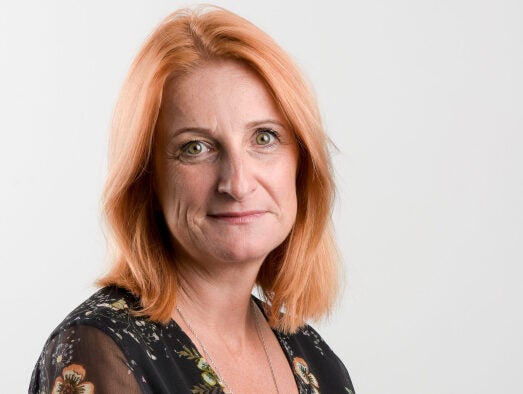
Daily Mirror editor Alison Phillips. Picture: Reach
I never stop being optimistic about the power of news to inform the public and change our world. A while ago there was a lot of talk about us being in a post-truth world but actually there have always been some people who lie and some people who reveal truths. When a story breaks through at the right time, when it truly shines light in dark corners, it can still be a game-changer.
I’m always excited when we find ways of engaging our readers – especially a new, younger audience who not too long ago we thought might never come our way.
It will be interesting to see what else comes from our work with newsletters. I have a weekly editor’s newsletter and in some ways, curating that balanced diet of must-read stories feels very similar to the process of putting a paper together. I think many readers will really respond to that level of care.
Alessandra Galloni, Reuters
Editor-in-chief

Alessandra Galloni, the new editor-in-chief of Reuters News, poses for a photograph in Rome, Italy, May 13, 2021. Picture: Reuters/Yara Nardi
2021 has been a difficult year in many ways, and the latest news about the new variant is worrying, but I am optimistic. The pandemic has highlighted the importance of trusted, independent news. Many news organisations, such as ours, have risen to the challenge of providing this trusted information, and helping individuals, institutions and governments make big personal and professional decisions – life or death ones, at times.
The news business is being tested by the impact of platforms, the proliferation of misinformation and the continuing challenges to press freedom around the world. However, journalists are resilient and, as an industry, we have demonstrated our ability to learn, adapt and improve. I am confident that the world is starting to recognise the real value of news – and trusted, independent journalism – as both a product and a public service. I believe we can do great things in 2022.
The past year has demonstrated the importance of trusted news and information. As politics and society become increasingly polarized and opinionated, there is a tremendous opportunity for publishers that offer impartial and unbiased news. Presenting rigorously fact-checked, fact-based journalism is a commercial opportunity. Publishers must invest in how they gather, verify and deliver news and, above all, in talent. It is important, in 2022 and beyond, to create more diversified newsrooms that reflect the world we cover. If we do, we can become immeasurably stronger.
Almar Latour, Dow Jones/ The Wall Street Journal
Chief executive/ publisher

Dow Jones chief executive Almar Latour. Picture: Dow Jones
As a society, we are witnessing profound changes in technology, media, geopolitics, health, economics, equality and much more. There has not been a moment like this in any of our lifetimes, and that means that there is a greater need for high-quality journalism, data and analysis. At Dow Jones, our mission is to provide the world’s most trusted journalism, data and analysis to help people make decisions. We exist for this moment, to help people navigate this era.
Being a source of truth for decision-makers of all kinds comes with the responsibility of earning that trust every single day. Looking ahead, as we all adapt to new ways of working and new realities, the relationships we cultivate with our audiences, members, customers, partners and employees will be paramount to our success.
During times of unprecedented complexity and disruption, people need to understand the facts. As publishers, it’s our responsibility to rise to the challenge—and that’s an opportunity as well. We need to be there for people when they need answers and facts, and we need to be there for them in the format they prefer.
At Dow Jones, our uniquely trusted content is most valuable in the hands of our audiences. To help the world’s decision-makers of all sorts, we need to be where they are—everywhere. In the year ahead, we will continue to invest in quality journalism, expand the reach of that journalism and invest in new formats and innovation. By providing top-notch journalism, data and analysis as well as state-of-the-art, engaging products and experiences, we can deliver on our mission and help people make some of the most important decisions in their lives.
Cyrus Mawewella, Global Data
Head of thematic research
I’m feeling really positive. In media the tech-enabled businesses are doing really well and those that are a bit behind are doing really badly and that’s a fantastic environment for M&A because the strong companies can buy the weak companies when their valuations are weak.
I think we will see a lot of M&A and I think we will see a lot of the wrong M&A such as two weak content companies merging with each other. If you want to do M&A focus on tech.
Dan Wakeford, People
Editor-in-chief
 This has been a transformational year in many ways. As our audience has gone through massive changes, they have turned to brands they trust most, like People. This is reflected in our unprecedented engagement with more than 100 million consumers – the largest of any magazine brand in the country. We have told captivating stories on all our platforms. We have proved that no matter what stage individuals are at in their lives, they come to People to escape into a story and to enjoy quality “me time.” We landed big global exclusives including the Friends reunion, the first interview with Vanessa Bryant after the devastating loss of her husband Kobe and daughter Gigi, and the first joint interview with President Joe Biden and First Lady Dr Jill Biden after the inauguration.
This has been a transformational year in many ways. As our audience has gone through massive changes, they have turned to brands they trust most, like People. This is reflected in our unprecedented engagement with more than 100 million consumers – the largest of any magazine brand in the country. We have told captivating stories on all our platforms. We have proved that no matter what stage individuals are at in their lives, they come to People to escape into a story and to enjoy quality “me time.” We landed big global exclusives including the Friends reunion, the first interview with Vanessa Bryant after the devastating loss of her husband Kobe and daughter Gigi, and the first joint interview with President Joe Biden and First Lady Dr Jill Biden after the inauguration.
Last year we produced more than 25 virtual events. Now, we are eager to return to owning the red carpet in person and to bringing that full 360 experience back to the People audience.
We have expanded our universe by creating unique new podcasts including our daily news show, People Every Day, new video series, a documentary on the children of 9/11 on Discovery+, TV specials on the royal family on the CW, plus a new quarterly publication dedicated exclusively to the royals.
We look forward to announcing more new products next year with even more impact with the digital expertise and investment of Dotdash Meredith.
People’s biggest opportunity is to continue investing in quality multiplatform content that delights and surprises; content that can’t be found anywhere else.
We made an impact with “Let’s Talk About It,” our mental health campaign, and our “Why I’m Getting Vaccinated” campaign. People won numerous accolades including a GLAAD Media Award for Best Overall Magazine Coverage for championing the LBGTQIA community. Consumers are interested in engaging with brands that are a force for good as well as a source of entertainment so we will continue to explore more areas where we can be of service to the world. We will focus on our human-interest coverage across all platforms including the premiere of Home Town Kickstart Presented by People, a new HGTV show slated for spring.
Dominic Ponsford, Press Gazette
Editor-in-chief
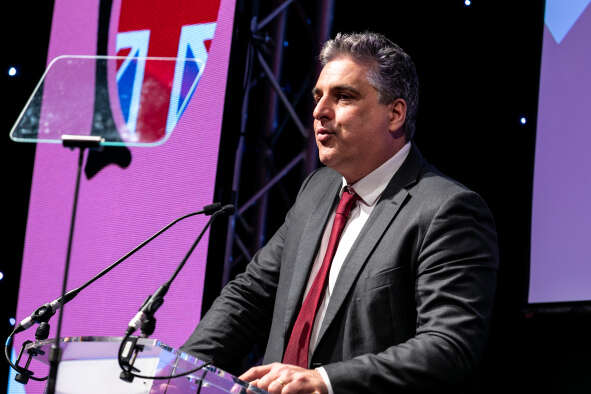
Press Gazette editor-in-chief Dominic Ponsford at the British Journalism Awards 2021
I feel approximately 400% more confident this year than I did last year because that’s how much our revenue has grown in 2021. It’s been our most successful year at Press Gazette since the mid-2000s as we have pivoted our editorial proposition more towards serving a senior audience of global media decision-makers and provided an intelligent marketing solution which targets those readers better than any other title in the market.
2022 belongs to the media brands that can provide must-read quality content and then capitalise on that relationship with useful native content. Paywalls offer safety, certainty and steady growth. But advertising is the biggest opportunity if you have a quality audience. If publishers can match the tech platforms on targeting and slickness of delivery then they will win because they are the ones with future-proof legit data about their readers.
Gary Shipton, JPI Media
Deputy editor-in-chief and editorial director of its Sussex Newspapers
Of course I am optimistic for 2022. Local newspapers and their websites have never been more important. We have been able to keep our local communities comprehensively informed throughout the horrors of the pandemic.
We have celebrated local successes, shared in the pain of Covid and other tragedies, and lifted up – through photos, words, and increasingly videos – the unsung heroes of every small town and village. In the darkest days, we have told stories that have made people smile.
In Sussex, that commitment to leadership, integrity and trust has been truly appreciated by our readers – demonstrated by some of our best newspaper sales trends and audience figures in many years.
In 2022, the opportunity is to get even closer to the communities we serve, to build on the values that set us apart, and to continue to use data to inform our editorial decisions without ever undervaluing the editorial intelligence that comes from knowing our readers and understanding what matters most to them.
The hallmark of next year will be the power of being local and the determination to bang the drum for our towns and villages without ever being afraid to ask awkward questions – and no media form is better placed to make the most of this than the local newspaper and its digital platform.
Jeremy Clifford, Archant
Editor-in-chief
This time last year, we were still in the depths of a lockdown that had impacted our industry heavily.
- Sales of printed titles were in high double-digit decline.
- However, we knew our communities needed us more than ever – a reassuringly positive response in the depths of the misery people were faced with.
- Our content had never been read by more people online. Readers were looking for us to bring them fact-checked, trusted and reliable news and information. We were beginning to see unprecedented rises in reader loyalty and frequency of visits to our websites.
- So, while the economies of our industry were critical and many smaller publishers were facing the wall, with title closures, we knew the appetite for our content was there.
Which brings us to 2022. The opportunity is in plain sight for us. If we know readers want our content because it is community-based, we understand our readers, and it is reliable and trusted – take a look at the Edelman Trust Barometer statistics that reinforced this – then how do we take advantage of this and build our business for the future?
We are now seeing more publishers investing in their content. Indeed, there is a shortage of trained journalists as publishers begin to open their recruitment doors.
We are also now seeing more publishers starting to take positive action to understand more about their readers and experiment with new models.
Whether that be charging readers or maintaining a free content delivery service, the future is in driving deeper relationships with our readers, better engagement, listening to their needs and wants and responding to those reader demands. It shouldn’t surprise us that the route to success is in listening to our customers, our readers and providing the service that improved data feeds now tell us in real-time what they want.
In my view, we are entering an exciting new age where we are free to build on the content provision in our newsrooms – and publishers will do that in different ways.
At Archant, the opportunity is based around creating and growing a sustainable subscription-based model where we ask our most loyal and frequent readers to pay a fair value exchange for the content they read or consume.
To do that, we have developed an industry-leading progressive web App experience. Industry-leading in that it has been designed by Pugpig which is used by some of the biggest brands in the country.
With that user experience secured, we are now working hard with our journalists to understand how to write the quality content we need to provide that is unique, offers something new to our readers, is high quality and multi-dimensional.
Our Touchpoints strategy has just launched with the first app for our Norwich City fans. We now have a delivery programme throughout 2022.
This year is not without its challenges, of course. Not least in ensuring our journalists feel valued and we provide the training to help them to succeed. But also to ensure their well-being and mental health is looked after.
I would like to see the industry come together as one to find ways of protecting our journalists from online abuse and to see the Government take action against those platforms that continue to allow this intolerable behaviour to be published.
John Witherow, The Times
Editor

John Witherow, editor of the Times newspaper. Picture: Reuters/Andrew Winning
I believe The Times is entering a golden age of journalism after decades of uncertainty. There is a growing demand from ever-better educated people in Britain and around the world who are curious about what is happening nationally and internationally, who want reliable news, exclusive stories, well-informed analysis, a range of views in comment, lively features and great arts and consumer coverage. Thus The Times has the potential to grow well beyond our print and digital sales that already exceeds three-quarters of a million.
The biggest opportunity in 2022 remains digital while maintaining and enhancing our strengths in print.. We are conscious that next year we have to raise our game editorially and technically on our digital platforms to give subscribers even better content. The Times was a pioneer in subscriber journalism and we need to step up our performance in various aspects of digital, including audio, video and interactives. We have partnered with Apple and Google to reach a much greater audience and Times Radio has been a new and successful outlet for listeners to engage with Times journalists. Overall The Times in all its numerous formats has a very bright future both editorially and commercially.
Katherine Bell, Quartz
Editor-in-chief

Quartz editor-in-chief Katherine Bell. Picture: Quartz
It’s hard to remember this time last year accurately, but I do feel more optimistic. Journalists have been through a lot in the last year, and we’ve learned a lot as well. After nearly two years of covering Covid-19, for example, news organisations are a little better at reporting on uncertainty: being extra clear about how we frame data, explaining what we don’t know as well as what we do, and finding ways to update stories as they evolve. I think we can still improve a lot on this, but it’s a start. That will be as crucial for reporting on the climate crisis. And the fact that more publications are covering climate change with more urgency, depth, and frequency gives me hope. Remote work, rampant burnout, and the great resignation are forcing media companies to pay more attention to culture, talent development, and diversity and belonging, and that can only improve the relevance and value of our work.
Thoughtful curation [is the biggest opportunity]. Readers are overwhelmed by the abundance and unbundling of information. I absolutely love email newsletters, and I pay for a lot of them, but I only read a few of them regularly. Readers don’t know what to pay attention to—this has been a problem in digital media for years, and it’s only grown worse, but I think this could be the year when we’ll see some new efforts to solve it. We’ve been thinking about this a lot at Quartz. In 2021 we created Essentials, which extract durable bits of knowledge from the news and put information into context. And we changed the core of our membership to email, with four weekly emails that together distil the best of our analysis, acting a bit like a concise weekly magazine. We’ll build on those projects and try new experiments in distillation and curation in 2022.
Kris Barton, Gannett
Chief product officer
We’ve seen and heard about several new innovations this year, and have made some strides ourselves in immersive experiences and augmented reality, imagery and sound, and even the introduction of the metaverse. As a product leader, my team and I are looking forward to exploring with our colleagues across the news organisation how we can build upon what we’ve delivered in 2021 to make consuming our news and content more interactive, immersive, and personalised in 2022.
It’s hard to narrow this down to just one [opportunity]. We are optimistic for the year ahead because we believe there’s a tremendous opportunity for innovation and exploration as new technologies become available for publishers and consumers.
As for all publishers, another big opportunity is centred on ways to develop and build first-party data platforms as we near the end of the third-party cookie. I believe registrations will become increasingly important for publishers. In return, audiences will have higher expectations from publishers as logged-in users, which provides an opportunity to deliver on those expectations and create more meaningful interactions. At USA Today Network, we will be using AI, recommendation tools, and innovating to provide even more personalised experiences for our registered audiences.
Nick Hugh, Telegraph Media Group
Chief executive
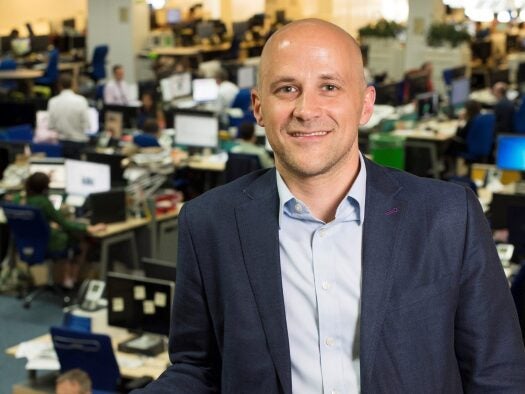
Telegraph chief executive officer Nick Hugh. Picture: Telegraph
The last couple of years have been challenging for everyone but as a business, we are in a strong position looking ahead to next year. We have recently passed 720k subscriptions with average revenues per subscription of more than £175. This growth is a reflection of both the quality of our journalism and the investment we’ve made in our subscription business model and wider digital transformation.
The launch of our new app this year has been a great success and we already have over 200,000 subscribers using it every day. Readers return to brands they trust and we have found moving to a paywall format has created a much deeper connection with our engaged subscribers. Our investments put us in a strong position as we enter the new year to build on this unique connection with our subscribers.
Financially, we expect to post very healthy double-digit growth in operating profit for 2021 which is solid ground from which to address some of the inevitable supply chain and pandemic-related challenges of 2022.
As a subscription business, we’ve been transparent with our subscription numbers for both volume and price, publishing on a monthly basis since the start of 2020. These numbers are independently verified each quarter by PwC and published every month.
Across the industry, publishers have pursued different business models from subscriptions to advertising to one-off contributions. There is an opportunity for the industry as a whole to seek a more consistent approach to reporting figures – be that subscription growth, or other business models and ensure clarity around methodology – which helps drive sustainability for the industry.
At TMG we have set out the goal of reaching 1 million subscribers by 2023, which we continue to make good progress towards. We will continue to have our figures independently verified and make available how we define our numbers.
Nicholas Carlson, Insider
Editor-in-chief

Insider editor-in-chief Nicholas Carlson. Picture: Insider
The world has enormous problems. Many of them are deadly and seemingly unsolvable. Lots of them are getting worse. For example, the planet is warming too quickly, and people are already dying because of it. And yet I remain optimistic that our species will somehow figure it out. I believe the truth told well can help each of us make life better for ourselves and each other. I was very optimistic about 2021, and I’m very optimistic about 2022.
The biggest opportunity for publishers in 2022 is the same as it is every year: to figure out what readers and viewers want to know and engage them about it. Tell the truth. Be independent. Be fair. Be helpful. The rest will follow.
Nick Mitchell, National World
Editor
I’m writing this in the midst of Omicron, so it’s hard to offer a picture of unfettered optimism right now, but nevertheless, I am optimistic about the industry, and about NationalWorld.com, and we’re looking forward to our first full year in 2022. For us, 2021 was all about launching and establishing a new national news title – never a simple task, but slightly more complex when you have a fully remote team based across the UK (we’ve spent most of our lives on Slack and Google Hangouts!)
We’ve learned so much in our first nine months of publishing – about our audience, our team and our ambitions. We’ve grown month-on-month, to a level I could not have predicted back in March, and we’ve been shortlisted for a few awards along the way (including the Press Gazette’s own British Journalism Awards recently). So I am looking forward to how we can keep growing and keep evolving, while staying true to our core principles of holding power to account, and producing quality journalism that’s relevant to people across the whole of the UK.
I know I won’t be alone in suggesting that it’s all about building closer relationships with readers. The days of relying on one Silicon Valley-based platform are thankfully long behind us as an industry, and now the opportunity is in deepening our links with our audience, whether that’s through more thoughtfully curated newsletters, online communities (that encourage intelligent and considerate debate), membership offerings, bespoke events (virtual or IRL), or app-based notifications.
For NationalWorld in particular, one of our core strengths is data journalism, and I think there’s an exciting opportunity to take this to the next level in 2022. The pandemic has shown that the audience has an appetite for clear, considered analysis of data – and I think the challenge for us as journalists is to marry this with our long-held skills in storytelling.
Peter Clifton, PA Media
Editor-in-chief

PA editor Peter Clifton. Picture: PA
It’s not exactly breaking news to say we are living through truly unprecedented times, and while the challenges around access and restrictions may well continue in to 2022, this is an immensely exciting time to be working in journalism.
The world faces unparalleled challenges with the likes of Covid-19 and climate change, while we continue to hold our governments to account both nationally and internationally. Terrorism remains an ongoing threat, and Sport will continue to thrill – whatever the restrictions – right through to the World Cup in Qatar.
Journalists are better equipped than ever to chronicle all this in words, pictures and video, which should make 2022 a really exciting time for the industry whatever the challenges.
And we’ve shown once again in 2021 what an incredible robust and flexible industry this is, so my optimism is high!
For us at PA Media, we believe our flexibility and agility is by far our biggest opportunity as we enter 2022.
As we all know, the last two years have seen unrivalled uncertainty, and the challenge of adapting quickly to changes in restrictions and access has put serious strain on publishers across the country.
Our flexibility to deliver across the wire, digital and bespoke editorial for our customers, and the agility with which our reporters, photographers and videographers can react to breaking news, trending topics and major events, is now proving more critical than ever.
We’re driven by adding value for customers, and in the constantly evolving media landscape, our ability to stay agile is helping customers deliver more content than ever.
Peter Skulimma, Endava
Senior VP global industry acceleration
I’m consulting a lot in the media space and focusing on what really works. I’m more positive than last year because it was impressive to see how the publishing industry came through this pandemic and the learning curve of the whole sector is increasing in terms of its transition to digital.
The biggest challenge is getting the right people in to get this done. Forget about attracting them because these are the people that everyone is looking for right now so M&A might be a very good way to get the right skilled people in you need, because otherwise it will be too slow. You need the game-changers who are not working like you as a publisher or media company are doing. Focus on people with skills and execution. It is the execution which is killing a lot of initiatives.
Rebecca Miskin, DC Thomson
Chief executive
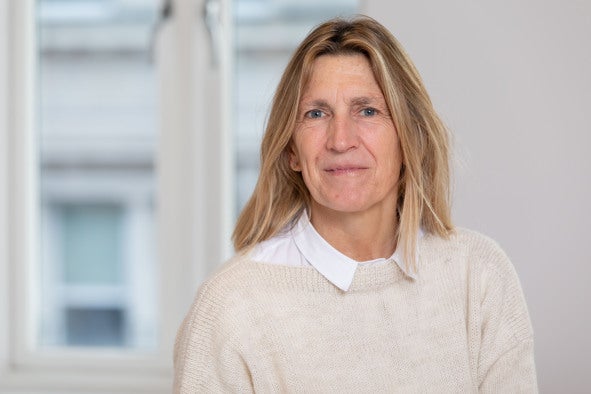
DC Thomson chief executive Rebecca Miskin. Picture: DC Thomson
I’m incredibly optimistic about what we can achieve in the next year. Our word for 2022 is definitely going to be ‘focus’: a focus on growth and a focus on purpose that will ultimately lead to a focus on doing fewer things but better and more distinctive.
I’m optimistic that we’ll find the right mix of remote and in-person working. Connecting when it matters will mean the best of both worlds for all of our people.
Our media business is going through a major transformation programme and fittingly for the new year, it’s a time to take stock. What has worked and what hasn’t done so well, where can we experiment, innovate and pioneer more.
2022 will remain unpredictable, but the resilience, ingenuity and resourcefulness of our colleagues to adapt and thrive during the most challenging of circumstances gives me confidence that rather than stall our transformation process – innovating and implementing – we will continue to develop new ways of working that will accelerate change.
What has been clear over the last two years is how incredibly important community is, and as publishers, we must look hard at our place within this.
Many people’s worlds have contracted, with more time spent at or close to home and a renewed focus on spending time doing the things that really matter to us. We publish local, niche and advocacy brands so this is our opportunity to take a fresh look at what we stand for and how we serve the communities we’re in as people’s needs and priorities shift.
Homes and businesses will be under continued financial pressure this year and we can play a role in campaigning to keep money in our communities by championing local trade. We did this as we moved out of lockdown, giving £250,000 worth of free advertising in our newspapers to help boost local businesses. If you don’t support your community, you can’t really expect your community to support you.
There’s something about the ethos of DC Thomson too that is needed now, and our brands are particularly good at celebrating the spirit of the people who live, work and play in our patches. After the relentless news cycles of the past two years, this comes as blessed relief.
Sean Griffey, Industry Dive
Chief executive
While I’ve been bullish on the media industry for some time, I’m even more optimistic headed into 2022. The economy remains robust and we’ve been able to adapt to the Covid environment at this point. More importantly, audiences and marketers are increasingly recognzing the value of high-quality insights and reporting. It’s never been a better time to be a publisher with a differentiated and valuable audience.
The continued regulatory, technological, and societal shifts towards privacy give publishers a chance to redefine their relationship with their audience and marketers. Successful media companies of tomorrow will recognize the value and importance of their first-party data. The biggest opportunity we have today is to not only get a handle of the data we have but put it in formats that are actionable not only for marketing partners but internal teams, too. Over the next year, we’ll look to continue to invest in both our underlying technology platforms and the teams who use them.
Tabby Elwes, CIL management consultants
Partner
Generally I’m feeling very optimistic about the next year. The last 18 months have been strange. There has been a slight disconnect between the level of activity which you’ve seen in business and the level of deal-doing that’s been going on while the streets are deserted and we’re all in lockdown. It has been absolutely frenetic with deal after deal. It looks as though it is going to continue to be a highly active market because private equity continue to be very interested in the media space, particularly if it’s got a digital angle or a tech angle. They also still have a lot of money which they need to invest and they want to find the right assets to do it.
The sweet spots we are seeing are content businesses that have a tech component which you can use to drive digital engagement and increase your depth of analytics, then that’s a really attractive thing for any investor.
Victoria Newton, The Sun
Editor-in-chief
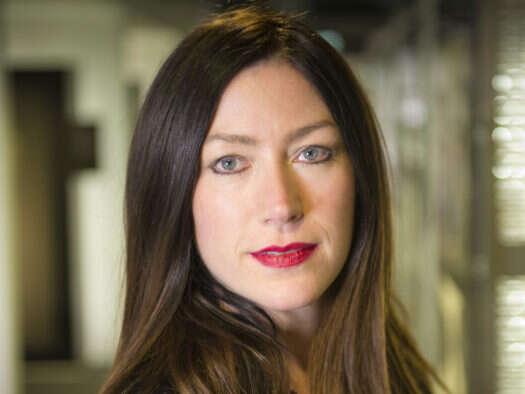
Victoria Newton. Picture: News UK
I’m feeling optimistic for the year ahead. Despite a hard year for everyone again in 2021, we were still able to begin to lead the newsroom into a digitally focused operation with terrific results. Our audience team was brought to the centre of the newsroom with all teams educated about best practice for online distribution of content. Digital became a big part of our conferences with numbers from online stories being shared, along with the search trends of the day, helping us make sure we’re delivering stories that matter to our audience.
The latest Pamco results show we are still the number one newsbrand in GB for daily, weekly and monthly in digital and print reach.
Piers Morgan will also join The Sun in January, with a huge audience driving debate and traffic.
We’ve led some award-winning campaigns and had the scoop of the year with Matt Hancock’s affair with his aide. The phenomenal online success of Hancock proves world-beating scoops are world-beating scoops whatever platform they are delivered on, this one had everything – a big uplift in print sales, and record traffic online.
Our US operation is also growing at a real pace and proving hugely successful. We’ve also increased our use of video in our story-telling and will look to continue this in the new year. With the continuation of all of the above, I think we’re in a great place to start the new year. In 2022, The Sun plans to continue to break great stories, produce quality journalism, and aim to remain the biggest news operation in Britain.
A combination of old-fashioned scoops and audience data means we can own stories on all platforms, maximising traffic and revenue.
Traditional print journalism skills are absolutely essential if we are going to be successful digitally, but we are going to think a bit differently about how and when we publish.
Exclusive stories will always be our life blood and in an age when there is more and more aggregation, original content has never been more important. The Sun is still the best at breaking stories – with both print and digital appeal – and setting the news agenda. Breaking revelatory stories that run and run can transform an average week of traffic into a good one and we are the best in the business at doing that.
We want our journalists to understand our audience even more than they do already, and with more data now readily available we’re in a great position to serve our audiences better.
We also have a clear focus on quality of digital content, not just quantity. By that we mean certain types of stories where the revenue opportunity is greater.
Zillah Byng-Thorne, Future
Chief executive
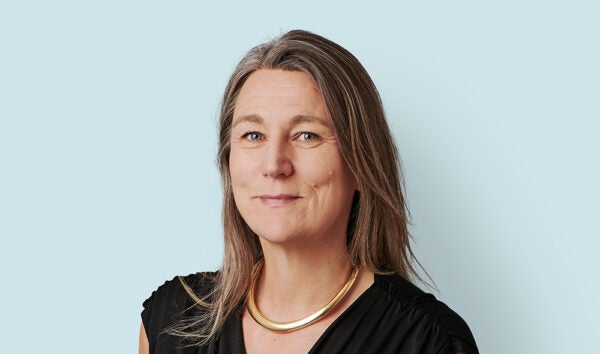
Future chief executive Zillah Byng-Thorne. Picture: Future
I’m optimistic about the year ahead. Whilst there is of course uncertainty with regards to the pandemic, the key is to be in a position to respond to – and ideally pre-empt – how your audience wants to consume content, which is why having a diverse range of revenue streams is so important. Very little is permanent in the media industry and this is why we’ve worked hard at Future over many years to create a model which is flexible and able to adapt to the needs of our audience.
In terms of the biggest opportunity for publishers, increasingly what you’ve seen over the last 12 or 18 months, is that people don’t want to be associated with organisations that don’t take pride in the content they produce or the impact they have on society. Customers and consumers want to identify with a brand or type of content, and so it’s about creating the content that our audience wants and thinking about how we scale that across the wider group.
I’m a passionate supporter of expert, trusted content and I think that in today’s society there’s a genuine value in original content, expertly produced, and as we, Future, have become a much bigger publisher and reach a much bigger audience – reaching one in two people in the UK and one in three people in the US online – we have a real moral responsibility to make sure we produce the best content we can for our audience.
Email pged@pressgazette.co.uk to point out mistakes, provide story tips or send in a letter for publication on our "Letters Page" blog
